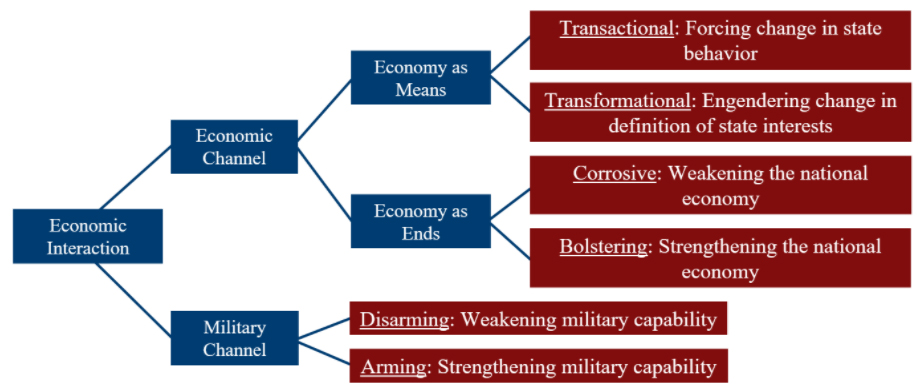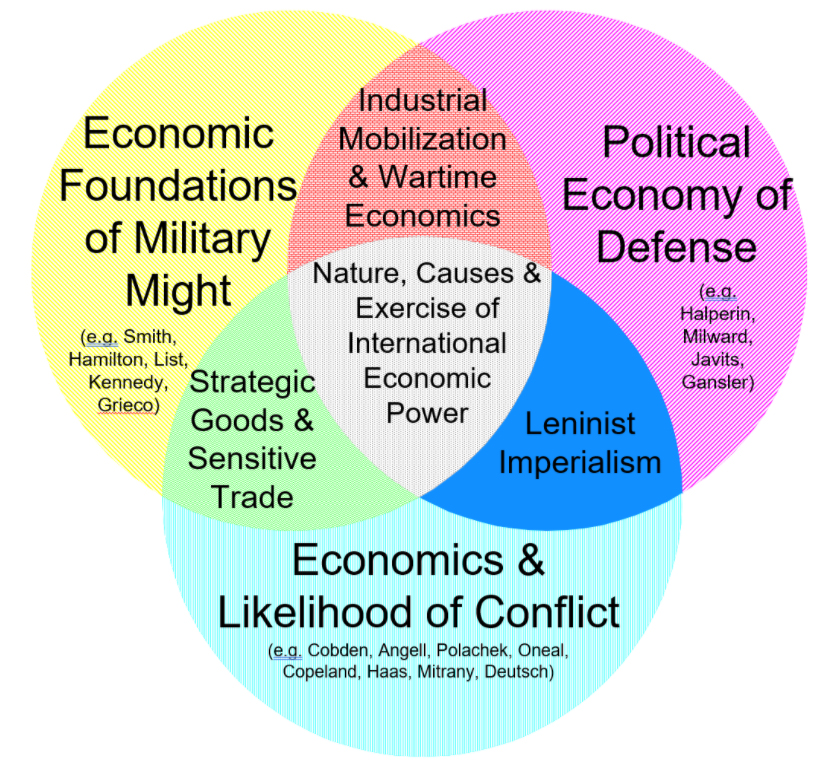Defining Economic Statecraft

Commercial actors (not states) conduct the vast majority of international economics.

These interactions may carry important implications for states’ strategic security (Security Externalities).

States can manipulate the incentives of commercial actors in order to encourage (or discourage) particular patterns of behavior that generate security externalities that are conducive to the state’s strategic interests.
Such manipulation is defined as Economic Statecraft.
How Does Economic Statecraft Work?

The subject of the economics-security nexus, or “economic statecraft,” asks security-oriented questions that economists tend not to consider, while at the same time requiring economic intuition and analytic toolkits that most security specialists do not possess. Economic statecraft, as we think about it, is the intentional attempt of a state to deliberately incentivize commercial actors to act in a manner that generates security externalities conducive to the state’s strategic interests. Organizing the intellectual space of economic statecraft along the lines of security externalities categorized on the basis of their effects on a target (rather than by the particular tools such as sanctions or export controls) can be more useful for the policy process.
This framework also provides a specific vocabulary clarifying precisely what a state is worried about and/or how a sender is thinking about its strategy to achieve its objectives using economic tools of national power. Broadly speaking, there are two channels via which economic interaction can impact a nation’s security: Military and Economic. Those externalities acting via the Military Channel share the common causal logic that a nation’s direct war-fighting capacity can be directly strengthened or weakened by economic statecraft. Similarly, we can think about strengthening or weakening a nation’s economy to affect a state’s security. For this family of externalities, security ramifications are often the second-order consequences of the economic interaction (as opposed to the military affects branch of the typology in which the economic interaction directly contributes or detracts from a state’s ability to wage war).
The economic branch is further subdivided into two groups: 1.) the types of externalities that affect the overall health of the target economy as an end in itself and 2.) those security externalities in which the economic interaction plays an instrumental rather than teleological role. In the “Economy as Means” group, the economic interaction may be primarily transactional (e.g. sanctions, freezing bank accounts, etc.) to alter the target’s behavior or to actually transform the goals and interests of the target.
By focusing on the terminal nodes of the typology, we are left with six distinct types of security externalities which cover the full range of possible security externality categories.
Framing Economic Statecraft

The study of Economic Statecraft resides at the intersection of a number of academic literatures that bridge between economics and security. These literatures are organized by areas of overlap as depicted in the diagram above. Economic Statecraft involves the nature, causes, and application of economic power.

